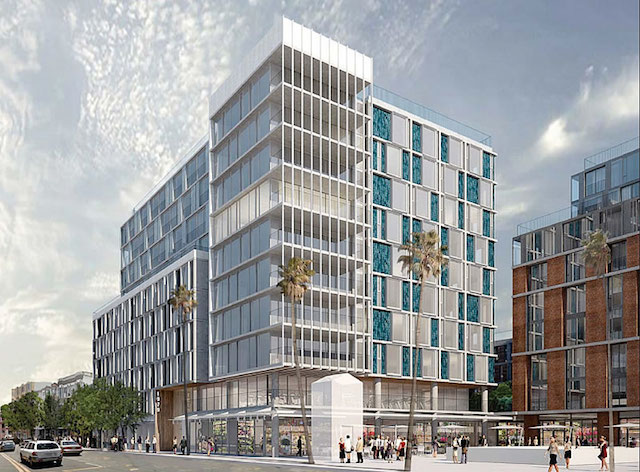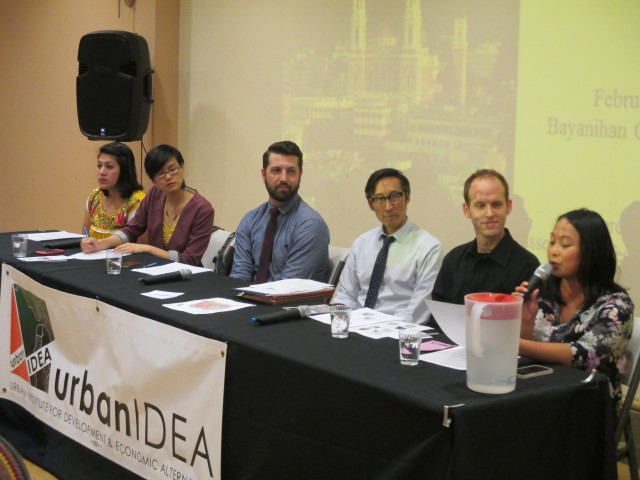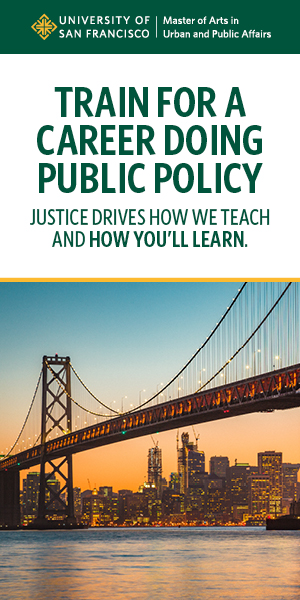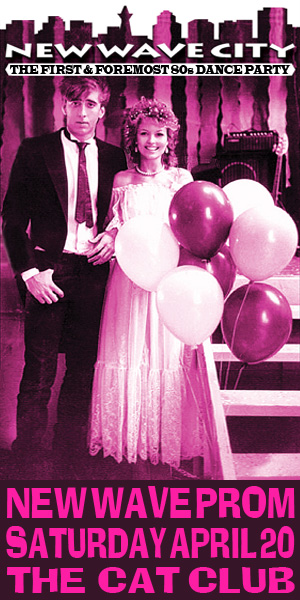In which we explore two housing protests, new ways to vote — and the question of whether San Francisco is a better (or more welcoming) city than it was 15 years ago

By Tim Redmond
MARCH 2, 2014 – The Maximus housing development at 16th and Mission has come to symbolize the devastation of the community. Put 345 mostly market-rate housing units right next to the BART station and prices for everything will rise – commercial rents will go up, forcing out local businesses. Residential prices will go up, putting more pressure on landlords to evict tenants.
But of course, the build-forever folks are saying that it’s housing, and we need more housing in the city.
We have had this discussion here at some length. The idea that more luxury apartments or condos will help low-income or working-class people find a place to live in the Mission defies logic.
The proposed project is big, and expensive, and will sit right next to an area where poor people hang out during the day. If you don’t think the rich residents will be pushing to clean up the BART plaza (by moving poor people out) then you haven’t paid much attention to how gentrification works.
So I suspect the March 4 meeting at which Maximus representatives will present their package of community benefits will be a bit … lively. A large community coalition plans to “March on Maximus,” starting at 5:45 pm. Meet at the Laborers Local 261 union hall, 3271 18th Street at Shotwell.
In other housing protests: A housing and politics collective is facing eviction from a place at 16th and Mission, right across the street from where Maximus wants to build. Coincidence? Maybe not: When you see this kind of land rush going on, property values soar, and a place that nobody wanted to rent a decade ago is suddenly worth a lot of money. So: Long-term tenants have to go.
In this case, the group called Station 40 (named after the old Post Office station that used to be on the site) moved into a rundown space in 2004. The collective members fixed it up, put in the proper plumbing and walks, and turned it into a place where ten people can live – and Food Not Bombs can cook it meals for homeless people, and all sorts of political groups can meet.
But now the landlord says the space shouldn’t be residential (though it’s been used that way for a decade, and presumably the landlord knew that). Friends of Station 40 will rally Monday/2 at noon at the 16th Street BART Plaza.

Great panel discussion last week about how progressives can win future elections in San Francisco. Two big points stuck out:
- We too often build coalitions and organize communities for big races, then let it all fall apart until the next election.
- We need to think about changing the way we vote.
I’m not talking about Ranked-Choice Voting, which is another discussion. This one, led by Nate Allbee, who ran the Campos for Assembly campaign, was about how we get our folks to the polls.
Campos, of course, won on Election Day. He lost the absentee, or vote-by-mail, ballots. Traditionally, the absentee vote in this city has been more conservative. It’s also growing: in some precincts this past election, more than 60 percent of the votes were cast by mail.
So Allbee has a couple of suggestions. Maybe, like the Swiss, we should just send a ballot to every registered voter, and let them either mail it in or drop it off at a polling place on Election Day. Or maybe, like Oregon, we should do elections entirely by mail. Turnout in Oregon, where every registered voter gets a ballot, is at least five points higher than in most other states in non-presidential years.
Maybe we should change the year we elect the mayor, and put it on the same ballot as the president.
But whatever we do, we need to get more of the occasional progressive voters to sign up for and use absentee ballots. That’s the GOTV of the future.
Another police shooting, in the Mission. The facts are a bit sketchy, but a guy armed with a knife (maybe) who was (maybe) stealing a bicycle is dead. I realize that a knife is potentially a deadly weapon. I always wonder in these situations if there wasn’t a way to disarm him without killing him. But you can ask: There’s a community meeting at 6pm at Cesar Chavez school, 825 Shotwell.
We are talking about Native San Franciscans a lot these days, though I suppose the only ones who can claim to be real natives were the Ohlone and the Miwok, most of whom were killed by the guy they’re making into a saint.
But if you were born here, you get a certain status as a native, and two of them – Joe Fitzgerald Rodriguez and Tony Robles – had pieces in the past couple of weeks talking about natives and newcomers. Both of them lament the loss of so much of what this city had.
Joe talks about being a welcoming city:
To my fellow longtime San Franciscans: Do protest constructively, but stop the hate because it doesn’t help anyone. We should honor our history as a beacon to new transplants, and coach them to add to our myriad cultures — not displace them.
In our minds, locals are singing “I left My Heart in San Francisco,” a melancholy song about leaving, and missing, our home. Let’s flip the script: “San Francisco” is a song welcoming both the return of locals, and newcomers.
To be a native born San Franciscan is to be disrespected; it is putting up with the whimsical, often obnoxious hordes that flock here, planting seeds imported from elsewhere without regards for the roots already here.
And then you have this.
I don’t really know what to do with Molly Ditmore’s piece from the Bold Italic. I get her point – we have better bike lanes now, and they redid Dolores Park and the Ferry Building – but seriously? A city where nobody but the rich can afford to arrive is better than one where the rest of us had a place?
San Francisco has always welcomed newcomers. We are a city of immigrants, from all over the world. There are always new generations arriving, bringing new life and energy, and there are always old curmudgeons who say things are going to hell.
But it’s different now. We are not a welcoming city anymore. And it has nothing to do with the natives complaining about new arrivals.
It has to do with this: A modest apartment costs $3,500 a month. With first-and-last and security deposit, that’s $10,500 to move in.
I have known and welcomed hundreds of people who have moved to San Francisco since I arrived in 1981. Many of them worked for me at the Bay Guardian. Some of my friends have become doctors or lawyers or PhDs, and some of them make pretty good money today.
But I don’t know a single person who arrived in San Francisco with $10,000 to spend on an apartment.
I don’t think I know a single person who arrived here with $10,000. Or with a job waiting that paid enough to cover $3,500 a month in rent.
I wouldn’t be welcome in San Francisco today. None of the scores of people I hired to work at the Guardian would be welcome. Not a single writer I know could move to the city today. The only reason we’re here is that we arrived in an era when housing costs were low enough that we could pursue our dreams.
Here’s Dittmore:
We all think we were the last of the cool kids to set up shop here. In coming here, we set out on our own personal gold rush in search of opportunity, acceptance, or fortune.
And here’s the difference: Everyone I know, across quite a bit of time, came here in search of opportunity or acceptance, or something else – but it was something other than fortune.
I don’t think I’m the last cool kid. I wasn’t very cool in 1981. (I remember one of the very cool kids dismissing me as “oh god, it’s Tim. Blue jeans, beer, and cheeseburgers.”) And my kids will tell you that I’m not very cool today.
But if my generation offered anything to this city – and I think we have – it was because we could arrive here with no jobs and no money, and still be accepted. In that sense, the city 20 years ago, 15 years ago, the city were there wasn’t artisanal produce in Safeway and there weren’t good bike lanes, was a better place. Certainly a lot more welcoming.




